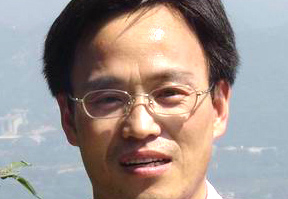FU SHOUXIANG: Reevaluating world literature classics
 World literature classics form the core of cultural heritage worldwide. They not only demonstrate aspects of great writers’ life experiences and the collective imagination of their ethnic groups but also provide a glimpse into the civilization of mankind in a certain era. They are legacies that belong to both local ethnicities and the world.
World literature classics form the core of cultural heritage worldwide. They not only demonstrate aspects of great writers’ life experiences and the collective imagination of their ethnic groups but also provide a glimpse into the civilization of mankind in a certain era. They are legacies that belong to both local ethnicities and the world.
Accordingly, I think the studies on foreign literature classics in China should be open and flexible, with an emphasis on respecting the original concepts while grasping the implications. In the current scenario of globalization, researchers should improve the instrumental role of literature by exploring literary values that are in accordance with contemporary reality as well as humanistic requirements.
Adopting a globalized, humanistic perspective, Chinese research on foreign literature should serve as a means for bridging divides among different cultures. While it is true that people should identify with their own traditions and have pride in their own culture, we should also study the civilizations of other countries with an open mind. By making use of others’ advantages, we can continue to improve ourselves and immortalize culture.
Cultural communication has become imperative in this era of information revolution. It requires researchers to transform traditional methodologies on literary study that rely mainly on textual interpretation and enrich them by drawing upon research methods, theoretical perspectives and assumptions of other disciplines.
Moreover, the focus should be shifted from the study of poetics, which has rigid disciplinary boundaries, to an inclusive study of culture with a broader outlook. Chinese researchers should abandon theoretical “tribalism” and examine literary works within their holistic sociocultural environment.
In the end, the research can provide a gateway between the “textual sphere” and the “actual sphere” to generate more interpretations beyond texts. By exploring the original sources and identifying the cultural attitudes and contemporary context that permeates the texts, we can develop a dynamic understanding of literature.
From a diachronic perspective, texts of literature classics can be inherited from generation to generation, while from a synchronic perspective, the formation of texts is full of dynamism. As a consequence, we cannot regard literature classics as isolated texts without considering the wider circumstances that led to their creation. Dialogues between literary and non-literary fields can help produce, multiply and spread new meanings.
By studying world literature classics based on the dynamic context, researchers can avoid the risk of disconnecting them from the social reality, thus building bridges between literature and society, the elite and the public, and aesthetics and commerce.
Presently, culture is of vital importance to national development and personal happiness. Furthermore, the legacy of civilization is the lifeblood of a nation. For China, it is essential to introduce excellent achievements of civilization from aboard in addition to carrying on cultural traditions, developing cultural industry and stabilizing the scientific management mechanism in order to become a cultural power. To this end, China will continue to improve its research on literature classics of other countries.
Fu Shouxiang is a professor from the East China University of Political Sciences and Law.

 PRINT
PRINT CLOSE
CLOSE